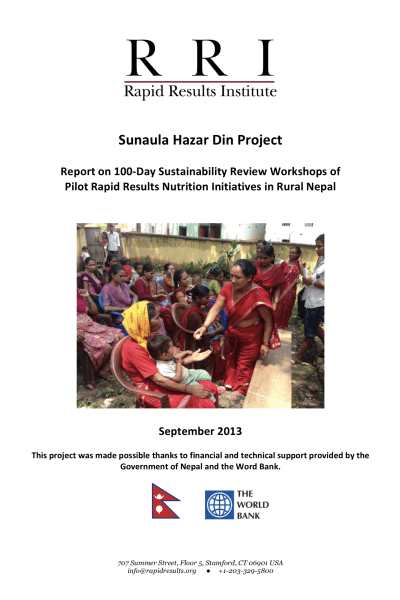
In 2013, a series of 100-Day Challenges were run as part of Sunaula Hazar Din, a national project to give the nation’s poorest rural communities support to implement essential nutrition actions that improve early childhood nutrition and maternal health.
In 2013, a series of 100-Day Challenges were run as part of Sunaula Hazar Din, a national project to give the nation’s poorest rural communities support to implement essential nutrition actions that improve early childhood nutrition and maternal health. A range of innovations were developed around improving sanitation as well as improving nutrition for babies and pregnant women. These Challenges were run in partnership with the Government of Nepal and the World Bank. Impacts included:
Two Wards becoming Open-Defecation Free
- All pregnant women within 100-Day Challenge communities eating one egg and two servings of green vegetables a day
- All children in 100-Day Challenge communities between the ages of 6 - 12 months eating ½ an egg daily, and all those between 12 and 24 months eating 1 egg daily.
As a result of the Challenge, 95 people were trained to carry out 100-Day Challenges as part of this nation-wide programme, and 100-Day Challenges continued to be carried out. There were also extensive shifts seen in perception with regards to hygiene, nutrition in pregnancy and early childhood. There was also access to new forms of income through increased poultry-keeping and egg production creating more sustainable livelihoods alongside improved nutrition.
